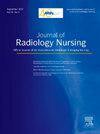Enhancing Nursing Practice Through Peer Support: Strategies for Engagement in the Nursing Workforce
Q3 Nursing
引用次数: 0
Abstract
Peer support among nurses has emerged as a pillar of professional well-being and quality patient care. The researchers explored the role of peer support within the nursing workforce, advocating for strategies to cultivate a supportive culture that is essential for nurse resilience, satisfaction, and retention. Drawing on recent literature and frameworks such as the U.S. Surgeon General’s Five Essentials for Workplace Mental Health and Well-Being, we have provided actionable insights into the mechanisms through which peer support functions as a critical buffer against the challenges nurses face in the postpandemic health-care landscape. Emphasizing the importance of connection and community, formal and informal methods of cultivating peer support were reviewed, ranging from mentoring programs and professional workshops to the simple yet profound acts of sharing food and writing notes. These strategies enhanced teamwork, facilitated professional growth, and ultimately improved patient care outcomes. Inherent challenges in creating effective peer support systems, such as time constraints and hierarchical barriers, were addressed, and intentional and adaptable approaches for nursing leadership to overcome these obstacles were proposed. The transformative power of peer support in reinforcing a sense of belonging, mitigating stress, and fostering a cohesive professional identity among nurses was emphasized. A proactive evolution of nursing practice was recommended, which embraces peer support as integral to a responsive and adaptive workforce capable of weathering the rigors of modern health care with solidarity and shared strength.
通过同伴支持加强护理实践:参与护理工作的策略
护士之间的同伴支持已经成为职业福祉和高质量患者护理的支柱。研究人员探讨了同伴支持在护理队伍中的作用,倡导培养支持性文化的策略,这对护士的适应能力、满意度和保留率至关重要。根据最近的文献和框架,如美国卫生局局长的《工作场所心理健康和福祉的五个要素》,我们提供了可操作的见解,通过这些机制,同伴支持可以作为护士在大流行后卫生保健领域面临挑战的关键缓冲。会议强调了联系和社区的重要性,回顾了培养同伴支持的正式和非正式方法,从指导计划和专业研讨会到简单而深刻的分享食物和写笔记的行为。这些策略加强了团队合作,促进了专业成长,并最终改善了患者护理结果。在建立有效的同伴支持系统的固有挑战,如时间限制和等级障碍,被解决,并有意和适应性的方法,护理领导克服这些障碍提出。强调了同伴支持在加强归属感、减轻压力和培养护士之间有凝聚力的职业认同方面的变革力量。建议积极发展护理实践,将同伴支持作为响应迅速和适应能力强的工作队伍的组成部分,以团结和共同的力量抵御现代卫生保健的严峻考验。
本文章由计算机程序翻译,如有差异,请以英文原文为准。
求助全文
约1分钟内获得全文
求助全文
来源期刊

Journal of Radiology Nursing
Nursing-Advanced and Specialized Nursing
CiteScore
0.80
自引率
0.00%
发文量
95
审稿时长
57 days
期刊介绍:
The Journal of Radiology Nursing promotes the highest quality patient care in the diagnostic and therapeutic imaging environments. The content is intended to show radiology nurses how to practice with compassion, competence, and commitment, not only to patients but also to the profession of nursing as a whole. The journal goals mirror those of the Association for Radiologic & Imaging Nursing: to provide, promote, maintain , and continuously improve patient care through education, standards, professional growth, and collaboration with other health care provides.
 求助内容:
求助内容: 应助结果提醒方式:
应助结果提醒方式:


